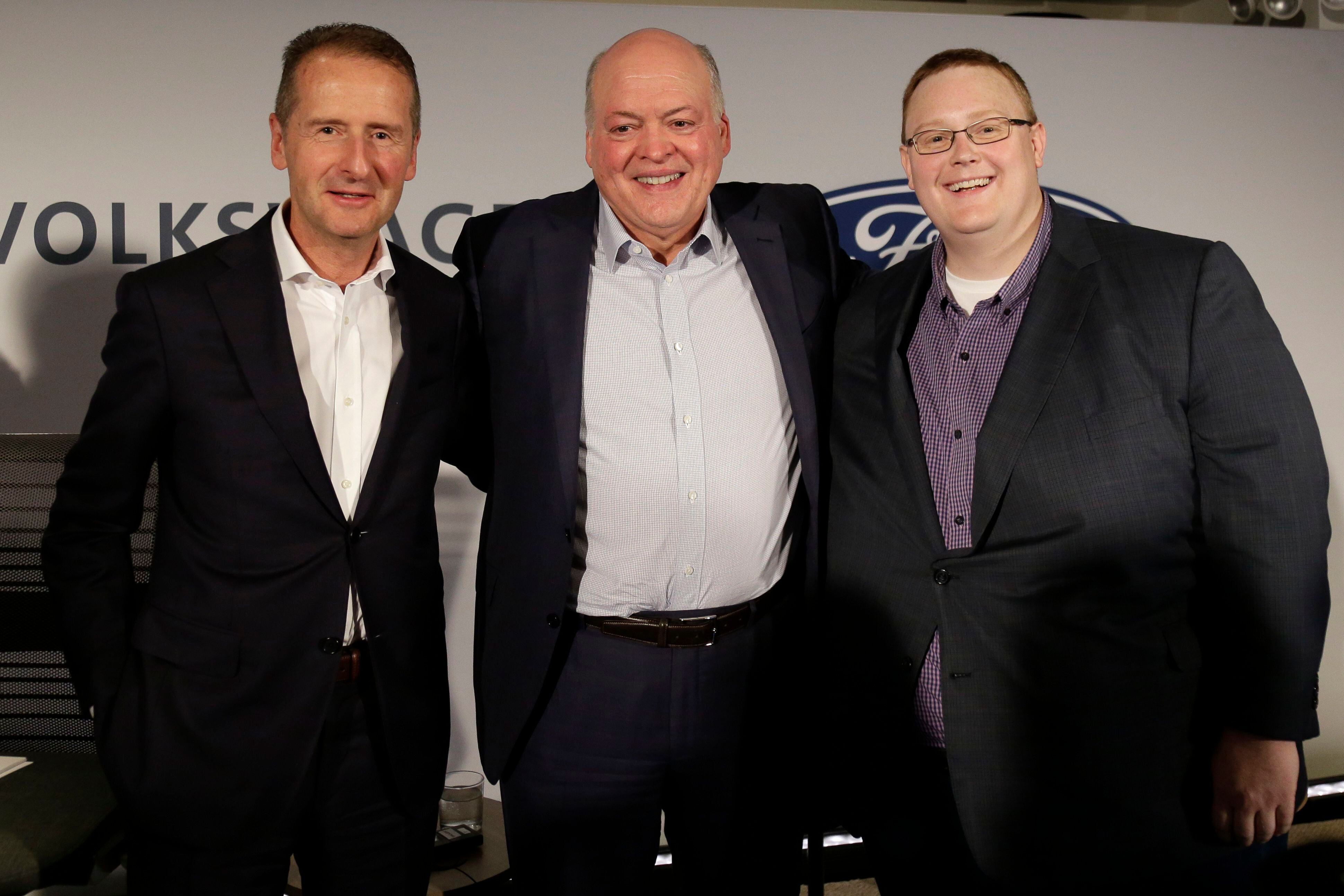Volkswagen and Ford have announced a multi-billion dollar collaboration on self-driving vehicle technology.
Volkswagen said it will invest a total of $2.6 billion in Argo AI, an autonomous vehicle technology firm that was founded just two years ago with a $1 billion backing from Ford. Volkswagen's investment brings Argo AI to a valuation of over $7 billion.
The deal "positions us as a technology platform company, expands the potential geography for deployment and will further fuel our product development," Bryan Salesky, Argo AI's CEO, said in a blog post. "In fact, we're the first self-driving company with definitive deployment plans in both the United States and Europe."
Volkswagen's investment will enable Argo AI to acquire its Autonomous Intelligent Driving (AID) subsidiary, which is valued at $1.6 billion. Pittsburgh-based Argo AI said it will make AID's Munich offices its new European headquarters. The handover brings Argo AI's global workforce to 700.
The arrangement gives Ford ($F) and Volkswagen ($VWAPY) an equal stake — and a substantial majority — in Argo AI. Remaining equity will be given to Argo AI employees.
As part of the deal, Volkswagen will also buy $500 million worth of Argo AI shares from Ford over the next three years. The companies said they will both integrate Argo AI's self-driving system independently.

Furthering their alliance, which is seemingly aimed at splitting the financial burden of new technologies, Volkswagen also announced on Friday that it will share its electric car designs and components with Ford.
"Looking ahead, even more customers and the environment will benefit from Volkswagen's industry-leading [electric vehicle] architecture," Dr. Herbert Diess, Volkswagen's CEO, said in a statement.
"While Ford and Volkswagen remain independent and fiercely competitive in the marketplace, teaming up and working with Argo AI on this important technology allows us to deliver unmatched capability, scale and geographic reach," Jim Hackett, Ford's president and CEO, said in a statement.
Hackett added that "unlocking the synergies across a range of areas" allows two companies to develop in "this era of smart vehicles for a smart world."
"Our global alliance is beginning to demonstrate even greater promise, and we are continuing to look at other areas on which we might collaborate," Diess said.
The Detroit-based automaker will become the first company to use Volkswagen's custom electric vehicle architecture, which it developed in 2016, as part of its effort to deliver 600,000 zero-emission vehicle in Europe in the next six years.
The companies also said they are collaborating to develop commercial vans and pickup trucks that will be released in select markets in 2022.













